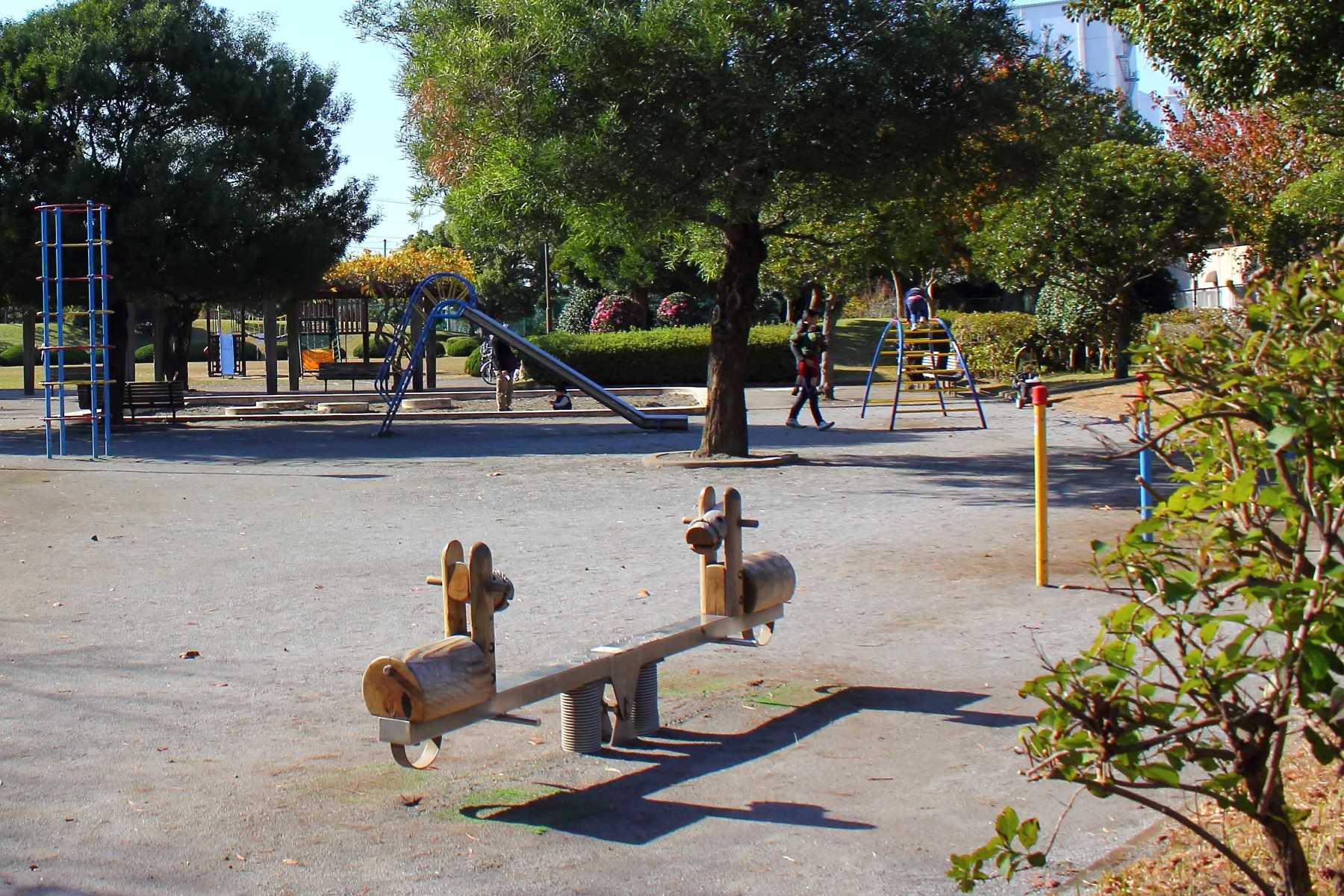Home>Lifestyle>The Surprising Truth About Birthdays: Are They Really Holidays?


Lifestyle
The Surprising Truth About Birthdays: Are They Really Holidays?
Published: January 29, 2024
Discover the surprising truth about birthdays and whether they should be considered holidays in this insightful exploration of lifestyle and traditions. Uncover the cultural significance and personal impact of celebrating these special occasions.
(Many of the links in this article redirect to a specific reviewed product. Your purchase of these products through affiliate links helps to generate commission for Regretless.com, at no extra cost. Learn more)
Table of Contents
Introduction
Birthdays are universally celebrated occasions that mark the anniversary of a person's birth. They are often associated with joyous festivities, heartfelt well-wishes, and the customary blowing out of candles atop a delectably frosted cake. However, beyond the surface-level revelry lies a fascinating tapestry of historical, cultural, and psychological significance.
The commemoration of birthdays dates back to ancient civilizations, where individuals were honored on the day of their birth. Over time, this tradition has evolved, taking on various forms across different cultures and societies. Moreover, birthdays have become intertwined with commercial interests, prompting the proliferation of a multi-billion dollar industry dedicated to birthday celebrations.
As we delve deeper into the realm of birthdays, it becomes evident that these seemingly simple annual milestones carry profound implications. From the psychological impact on individuals to the ongoing debate about whether birthdays should be classified as holidays, there is much to uncover and contemplate. Join us on a journey to explore the surprising truth about birthdays and unravel the complexities that lie beneath the surface of these seemingly joyous occasions.
The History of Birthdays
The tradition of celebrating birthdays can be traced back to ancient civilizations, where the commemoration of a person's birth held significant cultural and spiritual importance. In early societies, such as those in ancient Egypt, it was believed that the pharaohs were transformed into gods on the day of their coronation, which was often linked to their date of birth. Similarly, in ancient Greece, individuals would offer tributes to their lunar deities on their birth anniversaries, signifying the spiritual significance attached to the occasion.
The concept of celebrating birthdays as personal milestones gained prominence in Roman culture. It was customary for the wealthy to host grand celebrations known as "genethlia" to honor family members and friends on their birthdays. During these festivities, offerings were made to the gods, and elaborate feasts were prepared to mark the joyous occasion. The practice of commemorating birthdays gradually spread throughout the Roman Empire, permeating various social strata and becoming an integral part of societal customs.
In medieval Europe, the celebration of birthdays took on religious connotations, particularly within Christian communities. The observance of "name days," which honored the feast days of saints after whom individuals were named, often coincided with their actual birth dates. Over time, the focus shifted from exclusively religious observances to include secular festivities, marking the transition toward the modern concept of birthday celebrations.
The advent of the Industrial Revolution and the subsequent rise of urbanization further influenced the evolution of birthday customs. As families migrated to cities and social structures underwent transformation, the significance of individual birthdays grew, leading to the development of personalized celebrations and the exchange of gifts among family and friends.
As we reflect on the history of birthdays, it becomes evident that these annual commemorations have traversed diverse cultural and historical landscapes, evolving from spiritual and communal observances to personalized expressions of joy and affection. This rich tapestry of traditions and customs has woven the fabric of birthday celebrations, shaping them into the cherished milestones that are celebrated worldwide today.
Cultural Differences in Birthday Celebrations
The celebration of birthdays varies widely across different cultures, reflecting the diverse customs, beliefs, and traditions that characterize societies around the world. These variations offer a fascinating glimpse into the rich tapestry of global heritage and the unique ways in which individuals commemorate the milestones of their lives.
In many Western cultures, birthday celebrations often involve festive gatherings with family and friends, where the honoree receives gifts, enjoys a special meal, and partakes in the time-honored ritual of blowing out candles on a birthday cake. The singing of the traditional "Happy Birthday" song adds to the jubilant atmosphere, creating cherished memories for the individual being honored.
In contrast, some cultures place greater emphasis on specific milestone birthdays, such as the quinceañera in Latin American communities, which marks a young woman's 15th birthday and is celebrated with elaborate ceremonies and festivities symbolizing her transition to womanhood. Similarly, the "coming of age" celebrations in various cultures, such as the Japanese tradition of Seijin-no-Hi, honor individuals as they reach the age of maturity, signifying their newfound responsibilities within society.
Furthermore, certain cultures observe birthday traditions that diverge from the typical Western customs. For instance, in some Asian cultures, such as China and Vietnam, birthdays are often commemorated collectively on the Lunar New Year, with individuals aging a year older at this auspicious time. The occasion is marked by family reunions, feasting, and the exchange of symbolic gifts, encapsulating the significance of familial ties and ancestral heritage.
In Ethiopia, the celebration of birthdays follows a unique calendar system, where individuals mark the occasion based on the Ethiopian calendar, which is approximately seven to eight years behind the Gregorian calendar. As a result, birthdays in Ethiopia may not align with the corresponding dates in other parts of the world, highlighting the intriguing cultural nuances that shape birthday observances.
The diverse array of birthday customs across cultures underscores the profound impact of heritage, values, and societal norms on the commemoration of personal milestones. These traditions serve as a testament to the richness of human experience and the myriad ways in which individuals express joy, gratitude, and love in honoring the passage of another year in their lives.
The Commercialization of Birthdays
The commemoration of birthdays, once rooted in heartfelt expressions of love and appreciation, has undergone a significant transformation in the modern era. The pervasive influence of consumer culture and the commercialization of celebrations have reshaped the landscape of birthday observances, giving rise to a multi-billion dollar industry that capitalizes on the desire to mark these milestones in extravagant and often extravagant ways.
The commercialization of birthdays is evident in various aspects of the celebration, from the proliferation of themed party supplies and elaborate decorations to the pressure to host lavish events and exchange extravagant gifts. In today's consumer-driven society, birthdays have become synonymous with elaborate parties, exorbitant gifts, and the pursuit of Instagram-worthy moments, perpetuating a culture of excess and materialism.
The influence of marketing and advertising further amplifies the commercialization of birthdays, as companies strategically promote products and services tailored to birthday celebrations. From personalized merchandise to specialized entertainment options, the market is inundated with offerings designed to enhance the extravagance and grandeur of birthday festivities. This phenomenon not only fuels consumer spending but also perpetuates the notion that the value of a birthday is intrinsically linked to the material abundance surrounding it.
Moreover, the advent of social media has contributed to the commercialization of birthdays by fostering a culture of comparison and competition. Individuals are often compelled to curate picture-perfect birthday experiences, complete with luxurious gifts and opulent celebrations, in a quest for validation and social recognition. The pressure to outdo previous celebrations and create awe-inspiring moments for public consumption has elevated the commercial aspect of birthdays, overshadowing the essence of genuine connection and heartfelt celebration.
The commercialization of birthdays has also extended to the realm of children's parties, where elaborate themes, extravagant entertainment, and over-the-top confections have become the norm. Parents are inundated with a myriad of options for creating extravagant birthday experiences for their children, often succumbing to societal expectations and the allure of creating a memorable spectacle.
As the commercialization of birthdays continues to permeate contemporary culture, it is essential to reflect on the intrinsic value of these commemorations. While the market may offer an array of opulent options, the true essence of a birthday lies in the genuine expressions of love, gratitude, and meaningful connections that transcend material extravagance. By reclaiming the authenticity of birthday celebrations and prioritizing heartfelt gestures over commercialized indulgence, individuals can rediscover the profound significance of these annual milestones.
The Psychological Impact of Birthdays
The commemoration of birthdays holds profound psychological significance, influencing individuals' emotions, perceptions, and sense of self. These annual milestones serve as poignant reminders of the passage of time, prompting introspection, reflection, and introspective evaluation. The psychological impact of birthdays extends beyond the joyous celebrations, delving into the realms of identity, aging, and emotional well-being.
For many individuals, birthdays evoke a complex interplay of emotions, ranging from anticipation and excitement to introspection and contemplation. The annual reminder of one's advancing age can elicit a spectrum of feelings, including apprehension about mortality, assessment of life achievements, and contemplation of unfulfilled aspirations. As individuals navigate the journey of aging, birthdays serve as poignant markers, prompting them to assess their accomplishments, reassess their priorities, and contemplate the passage of time.
Furthermore, birthdays can evoke a sense of nostalgia, triggering memories of past experiences, cherished moments, and significant life events. The recollection of childhood birthdays, formative experiences, and pivotal milestones can imbue the occasion with sentimental value, fostering a deep sense of connectedness to one's personal history and the passage of time. Conversely, for individuals who have experienced adversity or loss, birthdays may serve as poignant reminders of absence, amplifying feelings of grief, solitude, and introspection.
The psychological impact of birthdays also extends to the realm of self-perception and identity. As individuals mark another year in their lives, they may engage in introspective evaluations of their personal growth, accomplishments, and aspirations. Birthdays can prompt individuals to reassess their self-concept, ponder their evolving identities, and contemplate their aspirations for the future. The process of self-reflection that accompanies birthdays can foster personal growth, resilience, and a renewed sense of purpose, as individuals navigate the complexities of their emotional landscape.
Moreover, birthdays can influence individuals' emotional well-being, serving as opportunities for affirmation, validation, and social connection. The outpouring of well-wishes, expressions of love, and acts of kindness that accompany birthdays can bolster individuals' sense of belonging, foster positive emotional experiences, and enhance their overall psychological well-being. The validation and affirmation received on birthdays can contribute to individuals' sense of self-worth, social connectedness, and emotional resilience.
In essence, the psychological impact of birthdays transcends the joyous festivities, encompassing a rich tapestry of emotions, introspection, and personal growth. These annual milestones serve as poignant reminders of the passage of time, prompting individuals to navigate the complexities of their emotional landscape, reassess their identities, and seek affirmation and connection. As individuals continue to mark the annual cycle of their lives, the psychological impact of birthdays remains a deeply personal and introspective journey, shaping their perceptions, emotions, and sense of self.
The Debate: Are Birthdays Really Holidays?
The question of whether birthdays should be classified as holidays has sparked intriguing discussions and contemplation. While traditional holidays such as Christmas, New Year's Day, and Independence Day are universally recognized and celebrated, the status of birthdays as holidays remains a subject of debate. Proponents of considering birthdays as holidays argue that these annual milestones hold profound personal significance, warranting dedicated time for reflection, celebration, and meaningful connections. From a cultural standpoint, birthdays are often marked by festive gatherings, expressions of love, and the exchange of gifts, akin to the customs observed during traditional holidays. Furthermore, the emotional and psychological impact of birthdays, coupled with the communal nature of their observance, aligns with the essence of holidays as occasions for shared joy and meaningful rituals.
On the other hand, skeptics question the classification of birthdays as holidays, citing the absence of universal observance and the personal nature of these commemorations. Unlike traditional holidays with historical, religious, or cultural significance, birthdays are inherently individualistic, centering on the unique life of the honoree. Critics argue that the designation of birthdays as holidays may dilute the distinction of established cultural and historical observances, thereby diminishing their societal and symbolic importance. Moreover, the commercialization and materialistic undertones associated with modern birthday celebrations have led some to view them as diverging from the intrinsic values of traditional holidays, which often emphasize communal spirit, altruism, and shared cultural heritage.
The debate surrounding the classification of birthdays as holidays encapsulates broader discussions about the evolving nature of celebrations and the significance attributed to personal milestones. As society continues to evolve, the traditional boundaries of holidays and commemorations are being redefined, prompting individuals to reconsider the cultural, emotional, and societal implications of these annual milestones. Whether birthdays are ultimately deemed as holidays or remain distinct personal celebrations, their enduring impact on individuals' lives and the rich tapestry of human experiences they embody underscores the profound significance of these annual milestones.
Conclusion
In conclusion, the exploration of birthdays transcends the mere commemoration of another year in an individual's life. It encompasses a rich tapestry of historical, cultural, and psychological significance, illuminating the profound impact of these annual milestones on human experience. From their ancient origins rooted in spiritual and communal observances to their modern-day manifestations laden with commercial and psychological implications, birthdays continue to shape the fabric of human celebration and introspection.
The history of birthdays reveals a fascinating evolution, traversing ancient civilizations, religious traditions, and the societal transformations brought about by urbanization and globalization. The diverse array of birthday customs across cultures serves as a testament to the richness of human heritage, highlighting the myriad ways in which individuals express joy, gratitude, and love in honoring the passage of another year in their lives.
Furthermore, the commercialization of birthdays has reshaped the landscape of celebrations, giving rise to a multi-billion dollar industry that capitalizes on the desire for extravagant and materialistic commemorations. This phenomenon prompts a reflection on the intrinsic value of birthdays, emphasizing the importance of genuine connections and heartfelt celebrations over commercialized indulgence.
The psychological impact of birthdays delves into the realms of identity, aging, and emotional well-being, prompting individuals to navigate the complexities of their emotional landscape, reassess their identities, and seek affirmation and connection. These annual milestones serve as poignant reminders of the passage of time, fostering personal growth, resilience, and a renewed sense of purpose as individuals navigate the complexities of their emotional landscape.
The debate surrounding the classification of birthdays as holidays encapsulates broader discussions about the evolving nature of celebrations and the significance attributed to personal milestones. Whether birthdays are ultimately deemed as holidays or remain distinct personal celebrations, their enduring impact on individuals' lives and the rich tapestry of human experiences they embody underscores the profound significance of these annual milestones.
In essence, birthdays encapsulate a myriad of emotions, traditions, and cultural nuances, serving as poignant reminders of the passage of time, the celebration of life, and the enduring connections that bind individuals together. As we continue to mark the annual cycle of our lives, the surprising truth about birthdays unfolds, revealing a tapestry of human experiences woven into the fabric of these cherished milestones.














